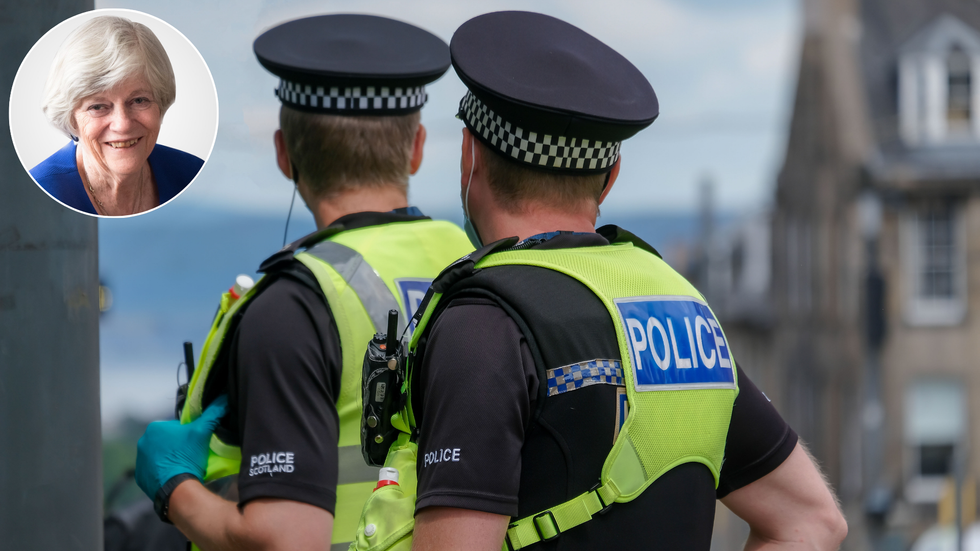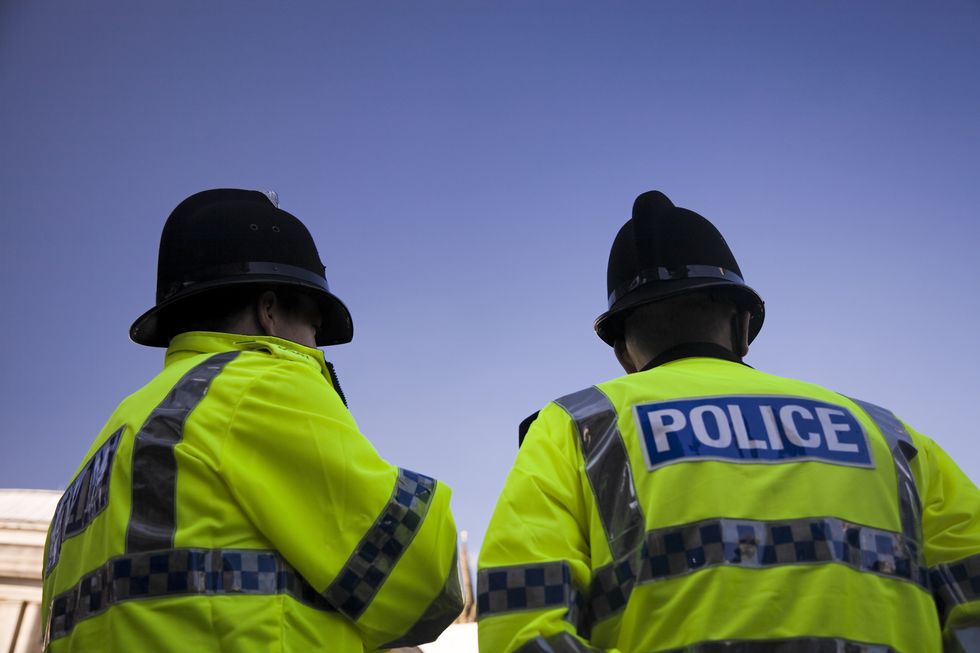'Really scary!' - Jennifer Powers reacts to police arresting two parents for criticising their child's school
GB News
OPINION: The decline of the police can be reversed, but it won't be easy, says Ann Widdecombe.
Don't Miss
Most Read
Trending on GB News
Sometimes change happens so slowly that people hardly realise it is happening, until the process is so far advanced that it seems irreversible. That, for example, is true of the decline in the quality of parliamentarians owing to decades of identity politics rather than merit as the determining criterion in selection. It is equally true of the decline in parent power in our schools and it is certainly true of the metamorphosis of our police from effective and esteemed public guardians into figures of ridicule and despair.
Many think the decline is the product of social media and the rampant dominance of political correctness, but I can remember decades ago a sergeant telling me that, no, he would not be applying to become an inspector. Apparently when he looked at the syllabus which he would be expected to master he found it was too heavily skewed towards how he must treat and seek to promote female staff. He had joined up to fight crime and he wanted that to stay as his focal point but the more personally ambitious would swallow whatever they were told in exchange for progress up the ladder.

The four things that must be done if we are to save British policing - Ann Widdecombe
GB News/Getty Images
“The British Inquisition” screamed the banner headline of a tabloid newspaper when two police officers quizzed a devout Lancashire couple for an hour and forty minutes in their own home, because they had asked the local council if they could display literature against civil partnerships alongside the council’s own literature in register offices. The council could simply have said no but instead called in the police.
Today they would have been lucky to have been questioned at home. A couple who had fallen out with their child’s school on WhatsApp recently found themselves arrested and interrogated at a local police station after a complaint was made of “a high volume” of correspondence. Six police officers had arrived on the scene.
Now the examples of police acting as though any opposition to state orthodoxy is a crime have become too numerous to catalogue as, over the course of decades, the policing of thought rather than action has become the norm.
Yet at the same time police reaction to burglary or shoplifting is to issue a crime number for the benefit of insurance claims and thereafter to ignore it. But heaven help the citizen who, despairing of police interest, acts on his own account. He makes an easy target for an arrest.
Police have all but disappeared from the beat, their stations are closed and whole days are spent monitoring social media.
Bureaucracy is at record levels. So, what can be done?

Reversing ingrained police priorities and prejudices is far from easy.
Getty Images
First, ministers can tell Chief Constables and Hendon Police College what their priorities really are and legislate if necessary. Secondly every police officer should have to spend two years physically on the beat and there should be a statutory requirement that all areas with high levels of anti-social behaviour have a regular police presence.
Third and perhaps most important of all, free speech must be guaranteed by law and police taught from their first day on the job that it is not their business what anybody thinks or believes, unless there is reason to assume that person may resort to violence or other actual criminal behaviour.
Finally, we must all be once again equal before the law. Strong convictions do not excuse criminal conduct, and the destruction of property is not less serious because the motives behind it are conscientious and heartfelt.
This may all sound easy, but it isn't. The police have been immersed in a particular way of thinking for so long that reversing the super tanker will be a struggle against deeply ingrained priorities and indeed prejudices, but it is time to start.








